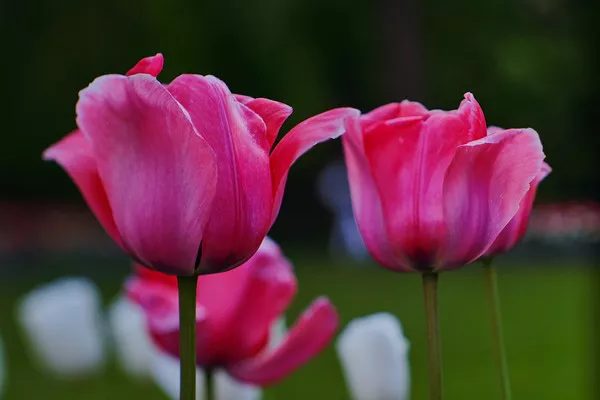Gardening enthusiasts and nature lovers alike often face the challenge of dealing with pests that can wreak havoc on their beloved plants. While chemical pesticides may seem like the go-to solution, they come with potential risks to the environment, beneficial insects, and human health. Fortunately, there are numerous effective and environmentally friendly methods to manage garden pests without resorting to chemicals. In this article, we will explore some tried and tested techniques that allow you to maintain a pest-free garden while minimizing harm to the ecosystem.
1. Practice Good Garden Hygiene
Maintaining good garden hygiene is crucial for preventing and managing pest infestations. Regularly remove fallen leaves, weeds, and plant debris from your garden beds, as these can serve as hiding places and breeding grounds for pests. By keeping your garden clean and tidy, you disrupt their life cycle and reduce the likelihood of an infestation. Additionally, proper spacing between plants allows for better airflow, reducing the risk of fungal diseases and making it harder for pests to spread.
2. Companion Planting
Companion planting is a strategy that involves growing certain plants together to deter pests or attract beneficial insects. Many plants have natural properties that repel specific pests, acting as a natural form of pest control. For instance, planting marigolds near tomatoes can help deter aphids, while intercropping aromatic herbs like basil and rosemary can repel pests like mosquitoes and whiteflies.
Furthermore, attracting beneficial insects, such as ladybugs, lacewings, and parasitic wasps, can help keep pest populations in check. Planting flowers like cosmos, yarrow, and alyssum will provide nectar and pollen sources, which attract these beneficial insects to your garden. They, in turn, feed on pests like aphids, caterpillars, and mites, helping to maintain a healthy balance in your garden ecosystem.
3. Physical Barriers and Traps
Physical barriers and traps are effective non-chemical methods for managing pests in your garden. For instance, erecting a fence or using netting can keep larger pests like rabbits, deer, and birds from damaging your plants. Row covers made of lightweight fabric can protect plants from insects, while still allowing sunlight and rain to reach them.
Traps can also be useful for controlling certain pests. Yellow sticky traps attract and capture flying insects like aphids, whiteflies, and fungus gnats. Beer traps, consisting of a container filled with beer, can help control slugs and snails. These pests are attracted to the scent of the beer and fall into the trap, ultimately drowning in the liquid. Regularly monitoring and emptying the traps will ensure their effectiveness.
4. Handpicking and Pruning
Sometimes, the simplest methods can be the most effective. Handpicking pests off your plants can be a tedious but highly targeted approach to pest control. Regularly inspect your plants for pests like caterpillars, beetles, and snails, and remove them by hand. Drop them into a bucket of soapy water to ensure they don’t return to your garden. This method is particularly useful for smaller gardens or when dealing with localized infestations.
Pruning infected plant parts can also help control pests. If you spot signs of pest damage or disease, promptly remove the affected leaves, stems, or flowers. By eliminating the affected areas, you prevent the pests from spreading and reduce the overall damage to your plants. Just be sure to clean your pruning tools between cuts to avoid spreading any potential diseases.
5. Organic Pest Sprays
While we aim to avoid chemical pesticides, there are organic alternatives available that can help control pests when other methods fall short. Homemade sprays made from organic ingredients can be effective against certain pests. For example, a mixture of water, dish soap, and vegetable oil can suffocate soft-bodied insects like aphids and mites. Neem oil, derived from the neem tree, has insecticidal properties and can be effective against a range of pests.
It’s important to remember that even organic sprays should be used sparingly and judiciously, as they can still impact beneficial insects. Apply sprays in the early morning or late evening when beneficial insects are less active, and avoid spraying open flowers to protect pollinators.
6. Encourage Natural Predators
Attracting natural predators to your garden is a sustainable and effective method of pest control. Birds, frogs, toads, and lizards are all natural predators that feed on garden pests. By providing suitable habitats, such as birdhouses, birdbaths, and piles of rocks or logs, you can create an inviting environment for these helpful creatures.
Similarly, encouraging insect predators like ladybugs and praying mantises can help control aphids, mites, and other small insects. You can purchase or release these beneficial insects into your garden, providing them with food sources and shelter. Avoid using broad-spectrum insecticides, as they can harm these valuable allies.
Conclusion
Maintaining a pest-free garden without the use of chemicals is not only better for the environment but also promotes a healthier and more balanced ecosystem. By practicing good garden hygiene, implementing companion planting, using physical barriers and traps, handpicking pests, utilizing organic sprays judiciously, and attracting natural predators, you can effectively manage garden pests while minimizing harm to beneficial insects and the ecosystem as a whole. Embracing these natural and sustainable pest control methods will help you create a thriving garden that is in harmony with nature.


